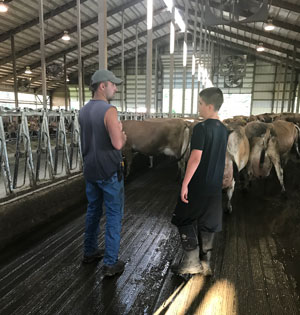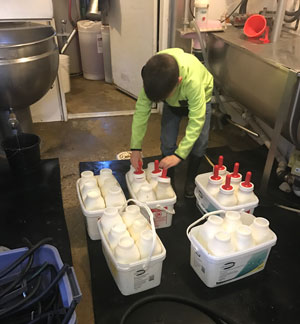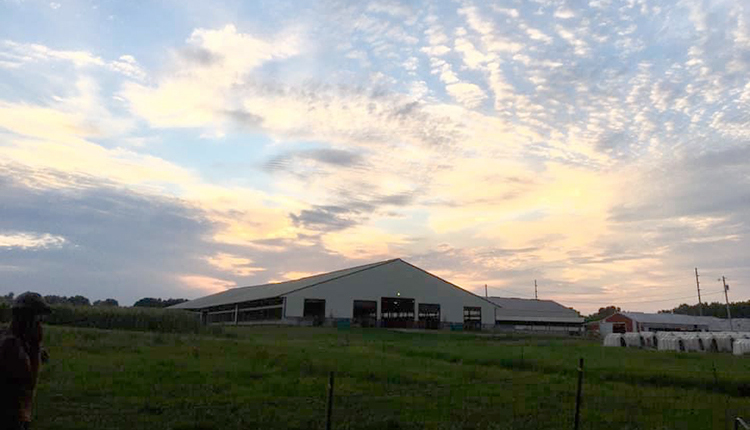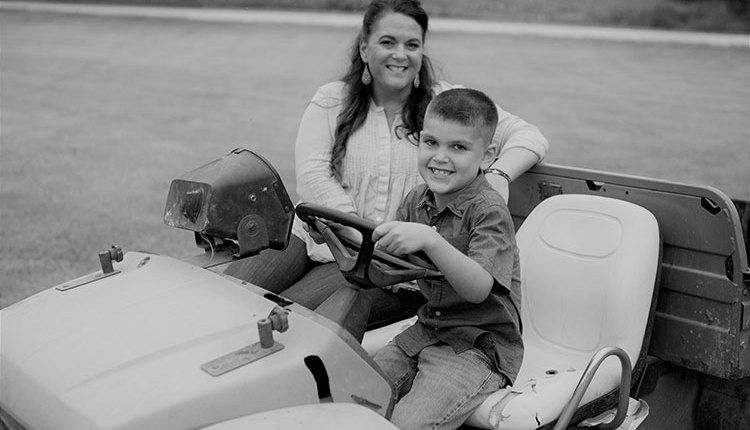
There may have been a time when we were at the happiest place on earth as a family of five, having less than a happy time. My oldest child, then 13, was acting entitled. Instead of appreciating this dream vacation that we had saved up for, he was bellyaching.
Yes, I just might have Googled the cost of military school while I was waiting in line for a ride at Disney World. But, truth to be told, overall we did have a great family vacation and to date, we have survived the teen years. Sometimes I have to repeat this to myself.
What I'm reminded of, over and over again, is there really is no better place to raise your children, especially your teenager, than on a farm. Just the other day, that same said child, who just turned 14, got up at 6 a.m., went to school for 8 hours, then came home and ran the barn (which includes moving cattle to and from the parlor, raking stalls, tending to the maternity barn, and more) for 8 hours. Raising our children on a farm is a blessing.
I've jotted down survival tips for when I find myself losing the battle with my teenager.

1. Feed your teens. Feed them A LOT! When my pantry and fridge is full, they seem the happiest. Before talking to them, I feed them.
2. Set boundaries. I know teens think they want freedom, but I assure you they also want boundaries to be set. In our household, we have a no electronics rule after 9 p.m. Now it's automatic for us to shut phones off and go to bed. It's also a simple rule to execute: when kids are disrespectful; they lose privileges (like phones) and will get extra workload (like bedding calf hutches) put on their shoulders.
3. Be persistent. When you stick to your guns, kids generally will obey you. When they don't, consequences have to occur. The more we have done this, the quicker attitudes change and apologies happen.
4. Fresh air cures just about any attitude. Thank God for living on a farm!

5. Step away. I began stepping away more. When it's just the kids in the barn, they talk to each other — about school, about friends, about cows and farm life, and about their problems. I think it's healthy for open dialogue among siblings, and it is also healthy for kids to become their own problem solvers.
6. I hug and kiss them. I do this even when they are hard to love. Kids need to know they're loved and showing them daily fills their hearts! And their mama’s, too!
Bring on year number 14. Thanks to raising kids on a farm, I've got this more than I realized.

Karen Bohnert is a second generation dairy farmer, born and raised on her family dairy in Oregon and moved east after graduating from Oregon State University. Karen and her husband work in partnership with family, and they along with their three children live and work on the family's 500 Jersey cow dairy in East Moline, Ill. Karen's pride and love for dairy could fill a barn, and she actively promotes dairy anyway she can.
Join us next week

The feeding behavior patterns of dairy cattle are known to impact health, productivity, and welfare. Trevor DeVries, University of Guelph, will discuss how the way we feed, house, and manage calves impacts the learning and persistence of their feeding patterns.
The webinar is sponsored by AAS.








